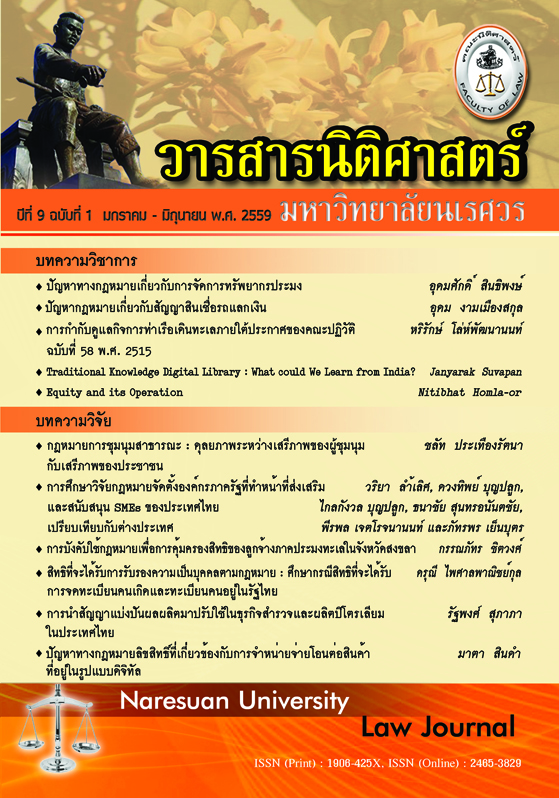Rights to Recognition as a Legal Person : Case Study of Birth Registration and Civil Household Registration Under Civil Registration...
Main Article Content
Abstract
The right to recognition as a person before the law is a fundamental right for all and recognized by various human rights instruments ; for example, Article 6 of the Universal Declaration of Human Rights, Article 16 of the International Covenant on Civil and Political Rights (ICCPR) and Article 7 of the Convention on Rights of Children. In practice, such right could be referred to the right to have a birth registration and the right to be recorded in the national population data. Particularly, the birth registration (Birth Registration for All) is the evidence that the state has acknowledged a child as a person before the state law and implemented the obligation under human rights law. The Committee on the Rights of the Child viewed that birth registration was a primary step to ensure the inherent right to life of a child and the right of a child to the survival and development Thailand respects this basic rights of a child by enforcing Civil Registration Act B.E. 2534 (amendment No.2) B.E. 2551 as a tool to recognize the legal status of every person. The government has developed a registration system being run by the Department of Provincial Administration under the Ministry of Interior. The system contains main documents, which are Birth Certificate, Household registration documents (Domicile certificate) and Death Certificate for a person born, domiciled and died within Thai territory or having a connecting point with the state under a territorial principle. The system is based on a non-discrimination principle with a difference in nationality or immigrant status. This action research uses a problem-based study approach by selecting and analyzing 10 legal cases where a child was not granted the right to recognition as a person before the law. The researcher has involved in providing legal aids and observed the law enforcement of the selected legal cases analyzed in this research. This research reflects that the problems are derived from a lack of legal knowledge on the right to recognition of a person before the law by the parents, regardless of the parent’s legal status, and the problem of law enforcement by the responsible officials such delaying the process or ignoring an application. This research has been conducting a survey on a situation of the problem and makes recommendations based on the problem-based and legal clinical study. Some cases could be solved while in some cases a child remains the status as a stateless person.
Article Details
References
Sooksai, C. Even though legal status could be difference but BR is for all. Bangkok: Rong Pim Duen Thula, 2006. [In Thai]


